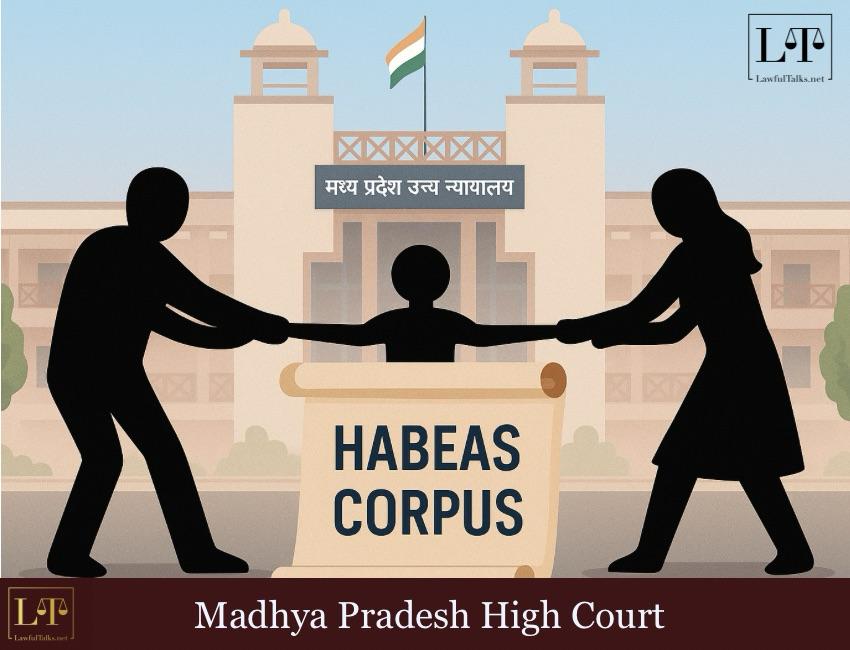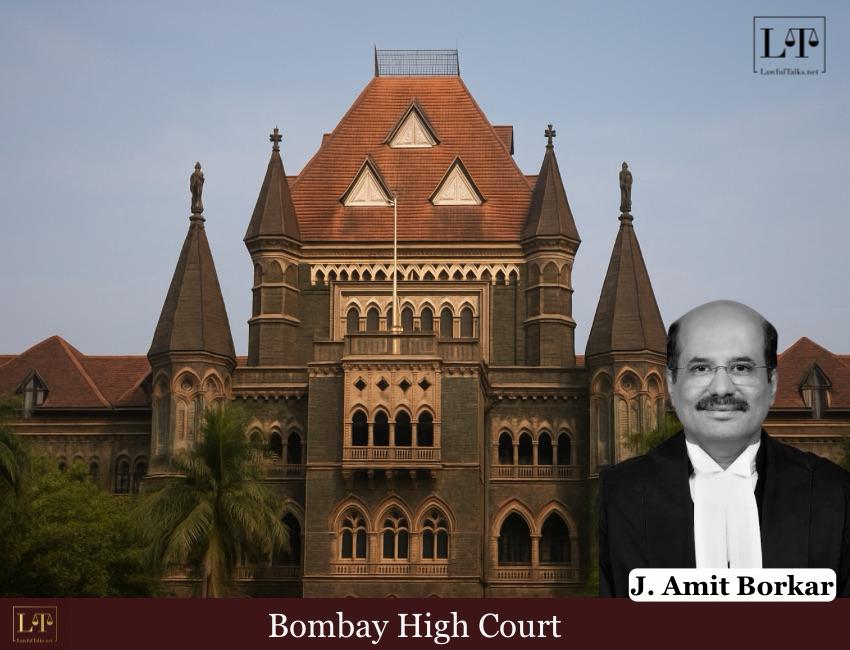Allahabad HC Sets Aside Afzal Ansari's Conviction, Allows Him to Continue as MP

Justice Vijay Kumar Shukla, along with Justice Binod Kumar Dwivedi, of the Madhya Pradesh High Court, delivered a notable judgment underscoring the limited yet vital scope of the Writ of Habeas Corpus in child custody disputes.

The bench held that this extraordinary remedy may be invoked only in rare and exceptional cases where a child is illegally or unlawfully detained by a parent or any other person, and cannot be used merely to enforce orders passed by a foreign court.
Background:
The case arose when a father petitioned the court, claiming that his wife had unlawfully and wrongfully taken their daughter from his custody. He sought the child's return to Canada based on the Canadian Family Court's orders, noting that the child had been raised in North America throughout her life.
The father also stated that despite his efforts to preserve the family unit, the mother consistently denied him the legal right to be with their daughter. On the other hand, the wife contested the maintainability of the writ, referencing the Vishnu Gupta vs State of MP case.
In that matter, a coordinated division bench had dismissed a habeas corpus petition filed by a father residing in the USA who sought custody of his minor son, pointing out the existence of alternative legal remedies under sections 13 and 14 of the Code of Civil Procedure (CPC).
Court’s Observation:
The current bench however rejected the wife's objection, clarifying that the Vishnu Gupta case had already probed the scope of petitions under Article 226 of the Constitution, classifying such petitions as being in the nature of Habeas Corpus.
The court asserted that, “A writ of Habeas Corpus cannot be used only for mere enforcement of the direction given by foreign Court and same is one of the facts to be considered and the extra ordinary power of writ of Habeas Corpus can be availed in exceptional cases where the detention of a child by parent or others is found to be illegal and without any authority of law where the original remedy provided by the law is either unavailable or ineffective.”
Ultimately, the court held that invoking the writ of Habeas Corpus in disputes involving the custody of a minor child is indeed maintainable, particularly in light of the guiding principles established by the Supreme Court.
The bench further elucidated, “The Court, while passing the writ of Habeas Corpus, will examine whether the welfare of the child requires that the present custody should be changed and child should be left in the care and custody of somebody else," adding that the "paramount consideration while exercising the writ of Habeas corpus for the change of custody of a child will be the welfare of the child."
Following these observations, the matter was adjourned for further hearing on October 10, 2025.
Case details: SM v State of Madhya Pradesh (WP-22416-2024)
Appearance
For Husband: Advocates Prabhijeet Jauhar, Firoza Daruwala and Rosemary Raju
For wife and child : Senior Advocate A.S.Garg with Advocates Raunak Choukse and Archit Jaykar
For State: Government Advocate Bhuwan Gautam

Anam Sayyed
4th Year, Law Student
Latest Posts
Categories
- International News 19 Posts
- Supreme Court 390 Posts
- High Courts 384 Posts




















































































































































































































































































































































































































































































































































































































































































































































































































